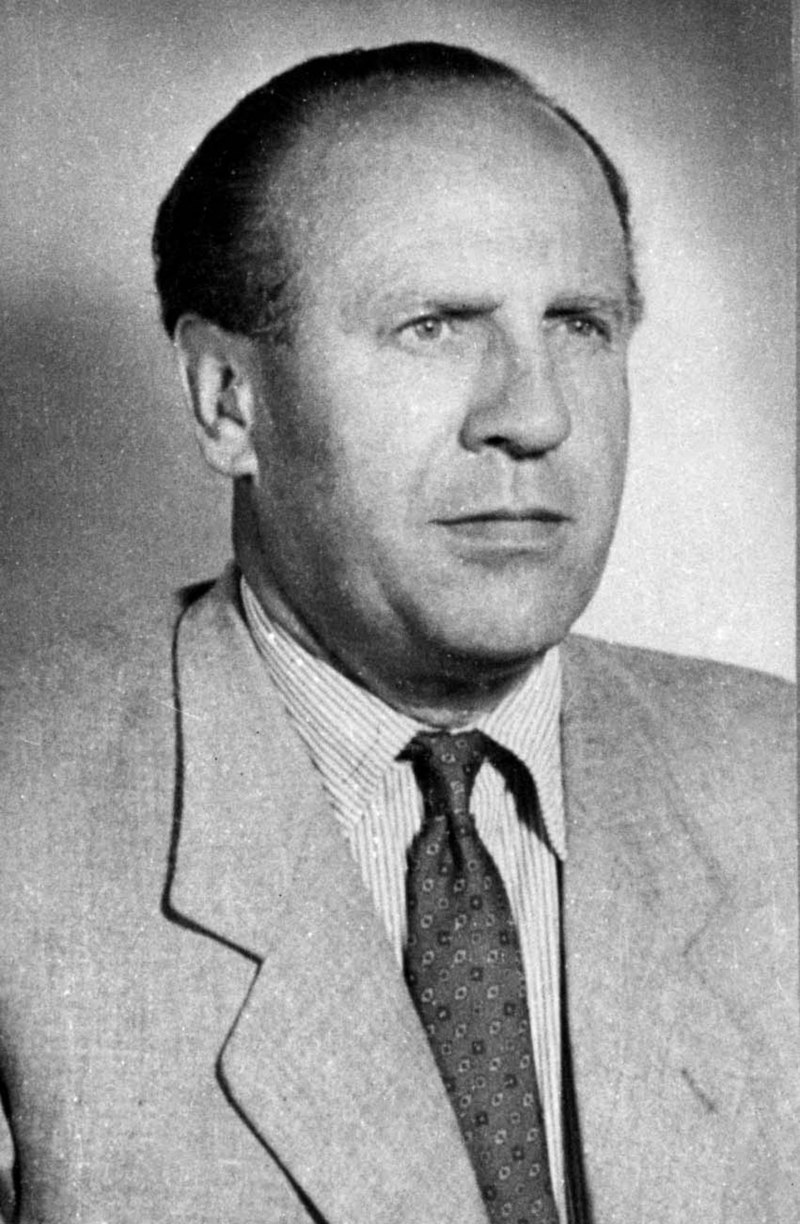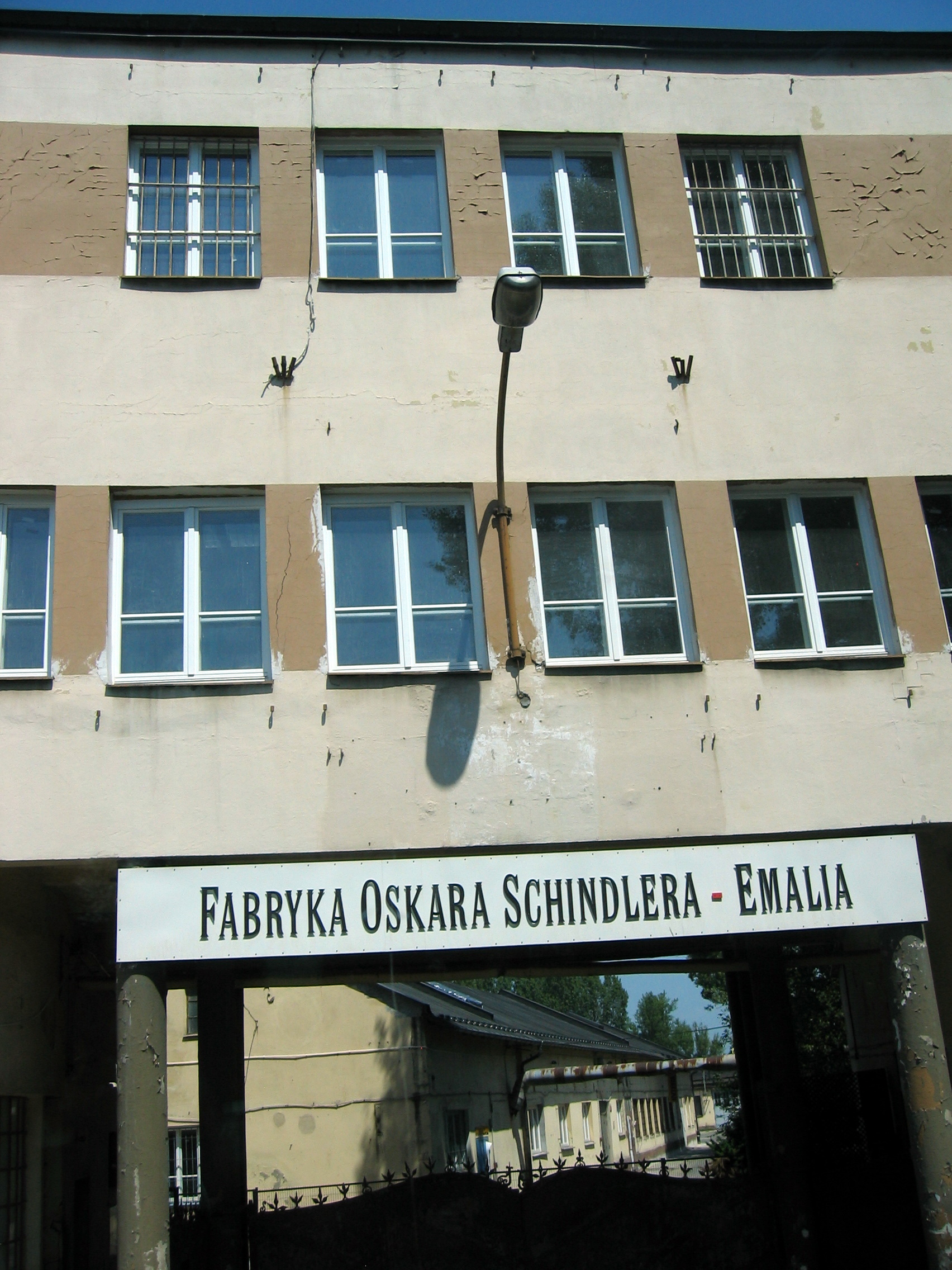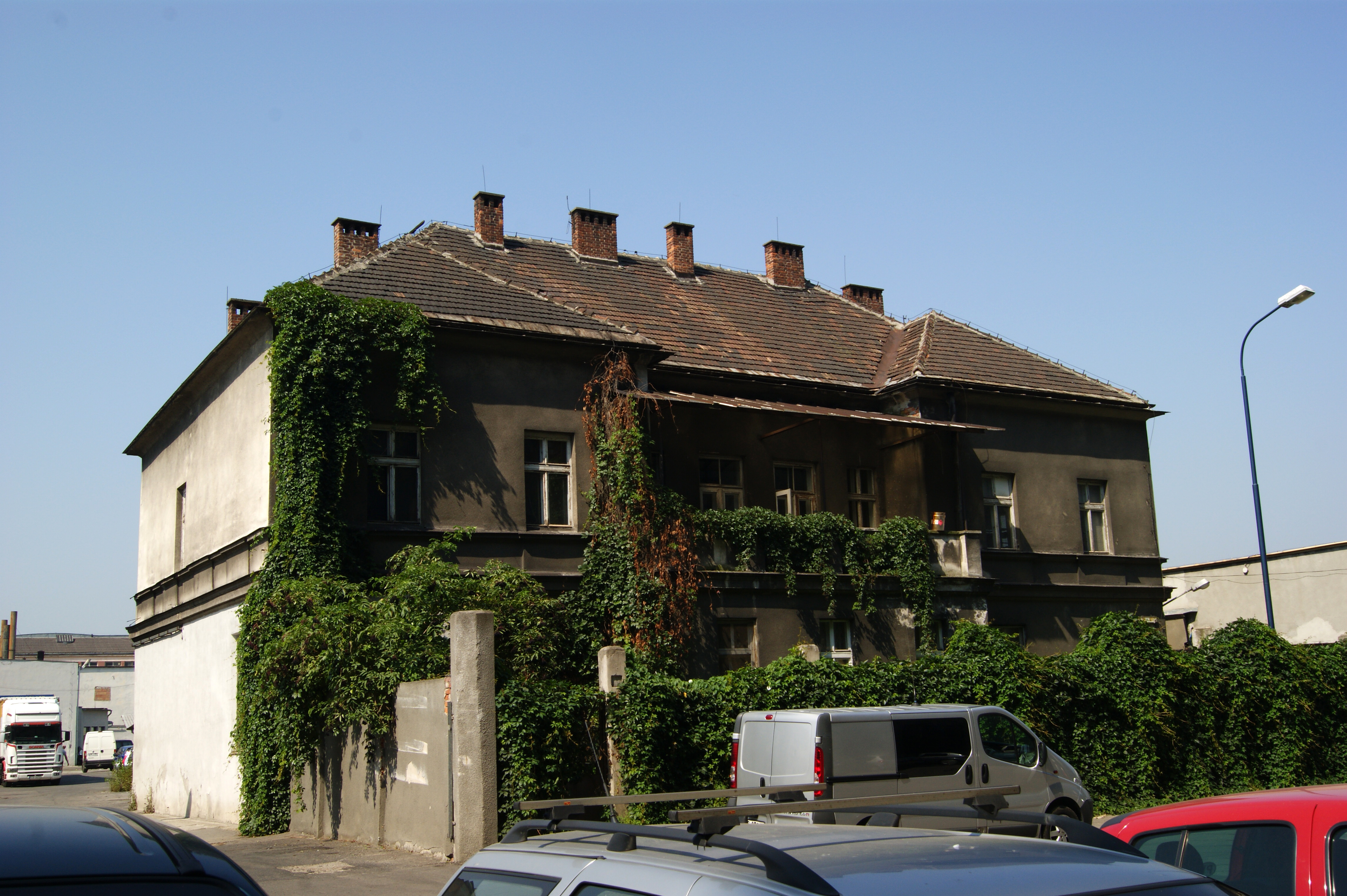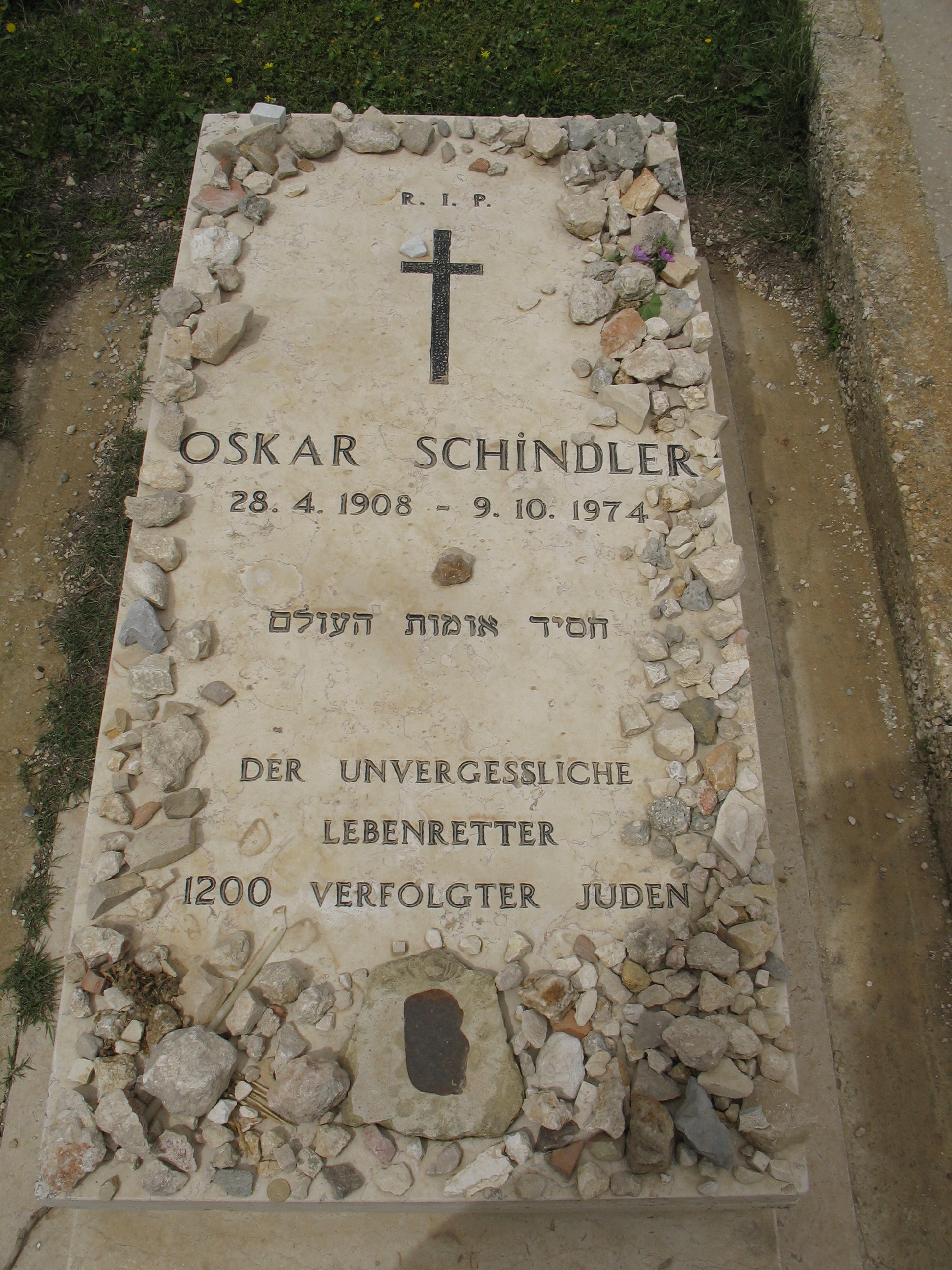


It's probably not surprising that Krakow is filled with museums. After all, the city's history is its trademark, something that attracts millions of tourists every year. In the wide range of Krakow's museums, you can find true gems, but today we will focus on one of them, more precisely on its patron and an extraordinary figure. We would like to dedicate this text to Oskar Schindler and his factory.
Our character was born in 1908 in Zwittau, part of the Austro-Hungarian Empire. As the son of a wealthy merchant and inheritor of a decent fortune, young Oskar was groomed from a young age to continue the family tradition. Not even the financial troubles and upheavals associated with the economic crisis of the 1930s could change that. Young and dynamic, Oskar gained more experience in the world of commerce and prepared himself to take his fate into his own hands.

Oskar Schindler, credits: Yad Vashem, Public domain, via Wikimedia Commons
Before Schindler made a grand entrance onto the stage of history, like a good German bourgeois, he ensured his settlement and assumed the appropriate position as the head of a family. In 1928, he married Emilie Pelzl. There were various rumors about Oskar Schindler's extravagant love life, but we do not intend to delve further into them. It is worth noting, however, that his relationship with Emilie Pelzl turned out to be childless.
At the beginning of his career, Oskar Schindler dabbled in various occupations. He worked in his father's company, ran a driving school, and even collaborated, if it can be called that, in trade with the Czechoslovak administration. However, a turning point in his business career turned out to be his affiliation with the Sudeten German Party (SdP) in 1935. Tensions between the Prague government and the Sudeten Germans were escalating, and as a result, Oskar soon found himself under the surveillance of Czechoslovak intelligence. His activities also caught the attention of Abwehr, the German military intelligence and counterintelligence. Schindler's cooperation with German agents led to his arrest in 1938, but shortly after the annexation of the Sudetenland by Nazi Germany, he was released from prison. Soon after, he joined the NSDAP and permanently linked his future with the fate of the Third Reich.
Immediately after the German invasion of Poland in 1939, he set off eastward with the Wehrmacht to grab as much as he could from the Polish land. He was not the only one with such an idea, but Oskar was a person of great business acumen and left little to chance. Therefore, he immediately began weaving a complex network of social and business connections with the key officials of the German administration in the occupied Polish territories.
As a result of his calculated maneuvers, Schindler acquired the First Krakow Enamelware Factory and Record Tinware in Podgórze at a bargain price, which he quickly renamed to Deutsche Emailwarenfabrik, or German Enamelware Factory. Initially, he continued the original production of enamelware, but over time, he decided to switch to the production of ammunition for the perpetually hungry reserves of the German war machine.

Oskar Schindler's Enamel Factory, Jf1288 at English Wikipedia, Public domain, via Wikimedia Commons
We are inexorably approaching the climactic moment of our story. It was undoubtedly a turning point in Schindler's life, although it seems that he was not aware at the time that he had just embarked on a path that would completely change his fate.
Fate or perhaps Schindler's well-known opportunism led the industrialist to employ 1,300 Jewish workers in his factory. Undoubtedly, their work could be described today as slave-like or even oppressive. However, it yielded such significant profits that Schindler soon began to provide his subordinates with a protective umbrella.
It is unknown exactly when the change in Schindler's motivation occurred. When did he stop treating his Jewish workers as living tools and begin to see them as people he could save? We may never have a definite answer to this question, but the fact remains that thanks to his intervention, hundreds of lives were saved.
For the purposes of the German administration, he maintained that his skilled workers, at least on paper, were essential for the proper functioning of the facility, and any actions against them were actually acts of sabotage against the German war industry. Oskar Schindler would not hesitate to defend his rights among his high-ranking friends. Undoubtedly, the numerous connections he had diligently cultivated over the previous years were beneficial in this game.

Oskar Schindler's Villa, 9 Romanowicza street, Krakow, Poland, by Zygmunt Put Zetpe0202, CC BY-SA 4.0, via Wikimedia Commons
Schindler's heroism was put to the test during the liquidation of the Krakow ghetto in 1942. The Germans intended to transport the local Jews to the forced labor camp in Płaszów, without regard for human life or health. It was then that Oskar Schindler stepped onto the stage, utilizing all available means at his disposal, including direct persuasion, bribes, and threats, to secure the well-being of his Jewish workers, who were soon known as Schindler's Jews or Schindlerjuden. To achieve his goals, he even made deals with the infamous Amon Göth, the commandant of the Płaszów camp, who agreed to transfer approximately 900 Jews to a sub-camp adjacent to the factory. As a result, their fate became much better than that of the remaining prisoners.
With the arrival of the Red Army, the Germans decided to liquidate the camps and exterminate the prisoners. However, even at this moment, Oskar Schindler's organizational talents came into play. Leveraging his connections, he managed to save his former workers. Thanks to him, 1,200 people gained a chance of having their sentences deferred. The execution itself was replaced by their transfer to the Brünnlitz sub-camp of Groß-Rosen, located in present-day Czech Republic. In this way, they managed to survive until the end of the war and the final liberation from the hands of Nazi criminals.
The cautious industrialist spent the end of the war in distant Argentina, where he tried his luck in various fields. However, each subsequent venture ended in failure, and finally, in 1958, Schindler, discouraged by his setbacks, decided to return to Germany. His homeland didn't prove to be any more successful for him. Even in Germany, he failed to achieve significant success.
He spent his last years frequently traveling to Israel. He visited his former workers there and, in 1962, planted an olive tree in the Garden of the Righteous. It was there, finally, that he was laid to rest after his death twelve years later.

Oskar Schindler's grave at the Catholic cemetery at Mount Zion in Jerusalem, Israel, Acmthompson at en.wikipedia, Public domain, via Wikimedia Commons
The figure and actions of Oskar Schindler have become permanently ingrained in the historical legacy of Krakow. However, it is just a small, albeit undeniably fascinating, excerpt from the over a thousand-year history of the former capital of Poland. If you are curious about other such personalities and events, we invite you to explore our offer.